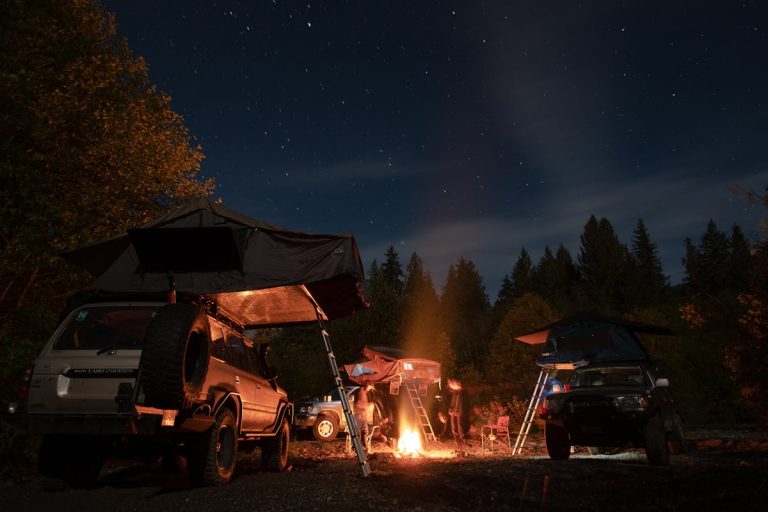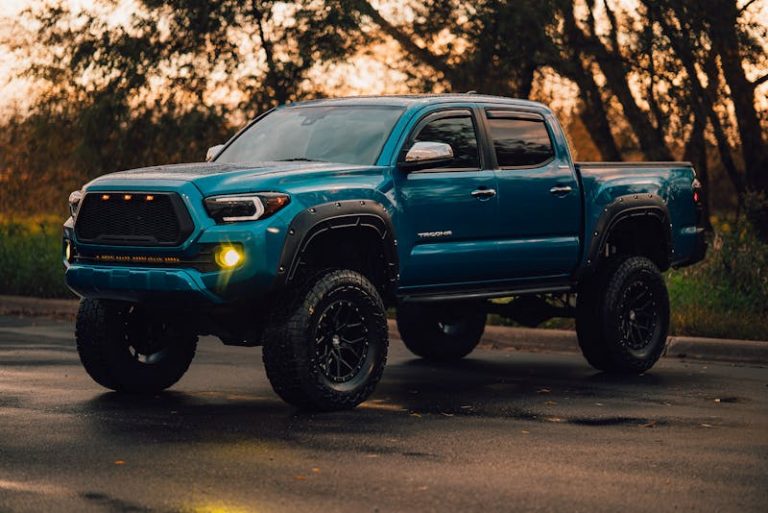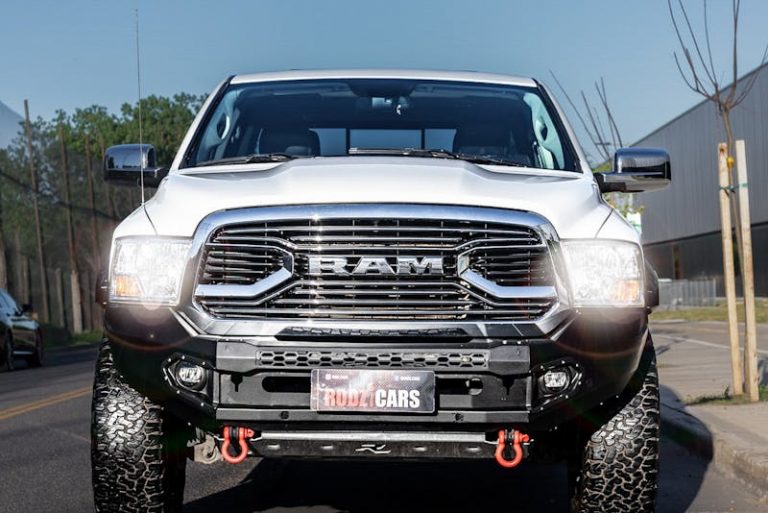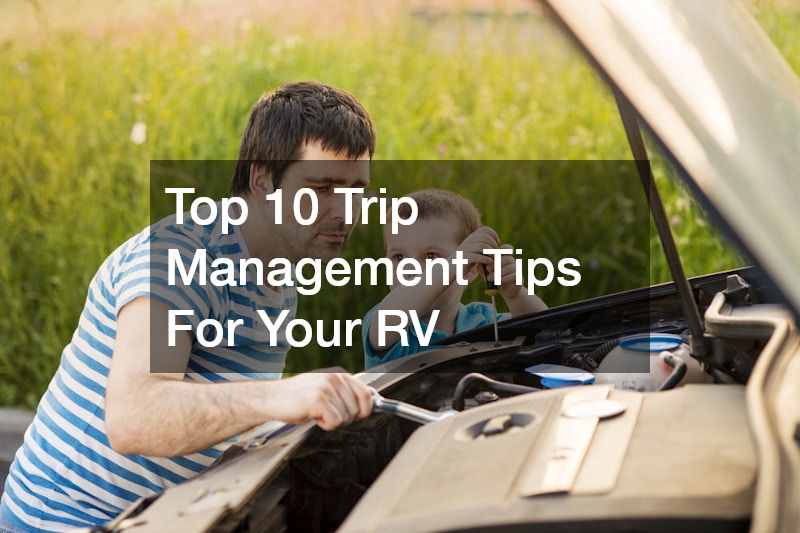

Embarking on an RV trip is an exhilarating adventure that offers the freedom of the open road combined with the comforts of home. For those new to this mode of travel, or even seasoned travelers looking to refine their approach, effective trip management is essential. An RV trip involves much more than merely getting from point A to point B. It requires careful planning, from how you manage fuel and energy to the emergency services you might need during the journey. This comprehensive guide will cover the multifaceted aspects of RV travel from start to finish. Whether your interest lies in maximizing comfort at the campground or ensuring safety on the road, this guide will serve as your steadfast companion. We will delve into topics such as solar panel installation for energy management, and the roles local businesses like local golf cart dealers and retractable awnings companies play in enhancing your trip. So, prepare yourself as we take off on this journey of discovery and practical insights into the thriving world of RV traveling.
1. How Do I Get Started?

Embarking on your RV journey starts with effective trip management, focusing on the necessary preparations to ensure a smooth experience. The initial step involves getting a thorough understanding of your vehicle, including car tag renewal, which ensures your RV is road-legal and in compliance with local laws. This step not only prevents legal hassles down the road but also ensures that your RV is in optimal condition for travel.
Next, it’s crucial to map out your journey, defining the key waypoints and destinations. This involves researching potential stops, attractions, and available amenities along your route. Trip management is essential in this phase to help avoid unnecessary detours and save time and fuel costs. Knowing where you can conveniently renew your car tag or find a towing company in case of an emergency becomes part of the strategic plan for a hassle-free journey.
An often overlooked aspect of getting started is the importance of familiarizing oneself with the RV community and the resources available. Joining online forums or local RV clubs can provide invaluable insights from experienced travelers who share tips on the best practices for trip management. You may also discover local businesses like camper shell dealers who offer equipment to enhance your travel experience. These initial steps set the foundation for a trip that’s both enjoyable and efficient.
2. Emergency Services For an RV Trip?
Effective trip management also involves preparing for emergencies, especially when on an extended RV journey. The open road can present unexpected challenges, and knowing which towing companies are reliable and accessible along your planned route is pivotal. Efficient trip management ensures you have a list of these services handy to minimize wait times and disruptions during emergencies.
Beyond towing services, it’s beneficial to have a detailed plan for accessing emergency medical services and local RV repairs if needed. Such preparation involves knowing the locations of hospitals and walk-in clinics along your route, as well as RV mechanics who specialize in quick and reliable fixes on the road. This planning precipitates a safer journey and peace of mind as you travel.
Ensure that your mobile device is always charged and that you have a reliable signal or access to satellite communication if traveling in remote areas. This element of trip management is crucial in connecting you with necessary services, from contacting septic tank companies for waste management to arranging for camper shell replacements in emergencies. With these measures in place, you’ll be equipped to handle emergencies with calm and efficiency.
3. How Do I Manage Fuel and Energy?
An essential component of trip management is the management of fuel and energy to ensure a seamless travel experience. Understanding the fuel consumption of your RV and planning refueling stops at regular intervals can save time and prevent running out of fuel in remote areas. This proactive approach also involves integrating alternative energy solutions, such as solar panel installation, to reduce reliance on traditional fuel sources.
Solar panel installation represents a growing trend among RV enthusiasts for its efficiency and sustainability. By harvesting solar energy, you can power essential appliances without continuously needing to refuel, enhancing your travel independence. This type of trip management not only supports eco-friendly travel but also saves costs by reducing fuel expenditure over long distances.
Effective management of your vehicle’s energy resources includes monitoring energy consumption and adjusting habits accordingly. This might involve limiting the use of high-power appliances or investing in energy-efficient equipment. By adopting this holistic approach to resource management, you’ll ensure that your energy needs are met while reducing your environmental footprint, thus making your RV trip more sustainable and cost-effective.
4. What Are the Best Campground Options?

Choosing the right campgrounds is vital for a comfortable and enjoyable RV trip, and trip management plays a pivotal role in this selection process. Start by researching campgrounds along your route that offer the amenities you seek, such as hook-ups for water and electricity, Wi-Fi, and spacious sites for parking. By planning your stops at preferred campgrounds, you create a comfortable base from which to explore the surrounding areas.
Additionally, connecting with local golf cart dealers can enhance your stay at larger campgrounds, where mobility is key. Golf carts can make it easier to move around extensive camping areas or explore nearby attractions without needing to move your RV. This consideration underscores the importance of integrating local business offerings into your trip management strategy for a more versatile and convenient travel experience.
Another layer to consider is community and environment. Engage with other campers to exchange tips and recommendations about nearby sites and attractions. Being part of the campground culture not only enriches your travel experience but also provides a network of support and knowledge. Strategic trip management that includes campground selection ensures restful stops that cater to your needs and interests.
5. How Do I Ensure Safety On the Road?
Ensuring the safety of your RV trip is a critical element of effective trip management. Regular vehicle checks and maintenance are essential to prevent breakdowns and ensure that the RV is roadworthy. Prioritizing routine check-ups with local RV repair specialists will keep your vehicle in optimal condition, thus minimizing the risks associated with long-distance travel.
In addition to mechanical safety, understanding and adhering to traffic rules and regulations cannot be overstated. Familiarizing yourself with the road laws of different states or regions you plan to traverse ensures you remain compliant and avoid unnecessary penalties or hazards. Proper trip management includes being knowledgeable about vehicle size restrictions and using appropriate routes designed to accommodate RVs.
Defensive driving techniques are another cornerstone of trip security. Be prepared for sudden changes in weather or road conditions by practicing vigilance and maintaining safe following distances. Such habits not only protect you and your passengers but also contribute to the overall safety of all road users. Safety on the road is a comprehensive effort that requires attention to both vehicle readiness and driver behavior.
6. How Can I Travel Without an RV?
Traveling without a traditional RV offers flexibility while still experiencing the joys of road travel. One popular alternative is using camper shells, which transform regular pickup trucks into cozy, efficient living spaces. These compact options provide the basic amenities for travelers who prefer a more modest setup while enjoying the freedom of the road.
When opting for camper shells, trip management involves planning for the essentials, such as compact cooking and sleeping arrangements. The reduced space requires thoughtful organization to maximize comfort without compromising on convenience. For those new to this method, consulting with local dealers can provide insights into options that best suit your needs.
Additionally, camper shells are ideal for travelers who focus on spending more time outdoors, capitalizing on the simplicity of minimalistic living. This approach to trip management is perfect for individuals or couples who prioritize adventure over luxury, providing a cost-effective and versatile way to explore various locations without the commitment of a full-sized RV.
7. How Do I Stay Comfortable at The Campground?

Comfort is paramount when staying at campgrounds, and trip management aids in creating a relaxing environment. One effective way to enhance campground comfort is through a retractable awnings company, which provides shade and shelter. These installations offer versatility, allowing you to enjoy outdoor spaces regardless of the sun or rain, and contribute to a more enjoyable stay.
Another aspect of comfort involves bringing along the amenities that make your stay more pleasurable. Portable generators or gadgets that offer alternative power sources can ensure you have access to the necessary comforts without overloading your RV’s power systems. Trip management includes foresight regarding off-grid camping experiences by planning for energy and supply needs well in advance.
Furthermore, campground comfort can be significantly enhanced by effectively utilizing space. For instance, organizing your living and cooking areas to maximize the usability of your RV or camper shell can lead to a more streamlined and pleasant experience. Proper trip management ensures that comforts, both large and small, contribute to an overall enriched travel adventure.
8. What Preventative Maintenance Should I Perform?
Preventative maintenance is a critical aspect of trip management that safeguards against unexpected disruptions during your RV trips. Regular checks on essential vehicle components, from tire pressure to brake systems, ensure your RV is in peak condition before setting out. Experts in car engine repairs can provide insight into potential issues and offer solutions to prevent breakdowns.
Additionally, consistent maintenance checks should include ensuring all fluids are at appropriate levels including oil, coolant, and brake fluids. These factors are critical not just for the mechanical integrity of your RV but also for fuel efficiency and reliability. Part of effective trip management involves setting a schedule for routine maintenance and inspections, extending the lifespan of your vehicle.
Moreover, it is advisable to inspect and maintain the living quarters of your RV. Ensuring no leaks or damages could cause discomfort or safety concerns. By addressing these preventative steps ahead of your journey, you enhance the reliability and enjoyment of your trips, preserving the investment in your RV.
9. How Do I Manage Waste and Sanitation?
Managing waste and sanitation is a crucial component of trip management, requiring adherence to environmental guidelines and practices. Efficient waste management ensures that all waste is properly sorted, stored, and disposed of at designated facilities. Working with septic tank companies provides beneficial services and products to facilitate smooth and environmentally friendly waste management.
Trip management in this domain also involves understanding the facilities available at campgrounds, like dump stations or waste disposal services, and planning stops accordingly. By scheduling these stops in advance, you help minimize environmental impact and maintain hygiene standards that are both safe and comfortable for all involved.
Personal waste management extends to ensuring proper sanitation practices are in place for daily activities such as cooking and cleaning. Incorporating eco-friendly products and procedures can help reduce harmful effects on nature while ensuring that you maintain a healthy living environment within your RV. These practices form an essential part of a sustainable trip management strategy.
10. How Can I Keep The RV Cool?
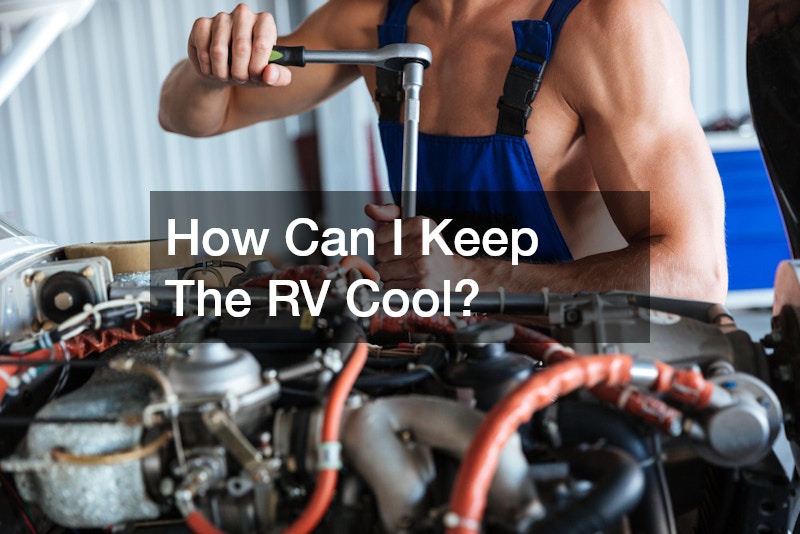
Maintaining a cool environment inside an RV is crucial, especially during hotter months, and trip management plays a pivotal role in effective climate control. Investing in efficient heating and cooling systems integrated within the RV can make all the difference. These systems ensure comfort by maintaining ambient temperatures regardless of the external climate conditions.
Another common trip management technique involves the strategic use of window treatments or reflective screens. These items help in keeping internal temperatures stable by reflecting sunlight away and preventing heat buildup. Investing in quality products from local retailers can offer solutions that optimize the comfort and energy efficiency of your RV.
Moreover, incorporating natural ventilation methods, such as keeping windows open at night and strategically parked, can significantly lower energy usage. With these multi-faceted approaches, your trip management strategy should encompass climate control solutions that ensure both comfort and efficiency. Through thoughtful planning and implementation, maintaining a cool environment in your RV becomes a seamless aspect of your travels.
Effective trip management is the foundation upon which successful RV travels are built. Each section of this comprehensive guide has sought to provide actionable advice and insights, addressing crucial aspects of RV travel such as starter tips, emergency services, fuel management, and comfort optimization both on the road and at the campground. From utilizing solar panel installation to practicing regular preventative maintenance with your vehicle, each component plays an integral role in enhancing your travel experience. As you embark on your RV adventure, whether through the traditional large vehicles or employing alternatives like camper shells, strategic planning tailored to your preferences and needs will lead to memorable and worry-free journeys. Ultimately, by focusing on these key trip management strategies, you set the stage for a fulfilling experience on the open road, all while maintaining the freedom and spirit of adventure that are the hallmark of RV explorations. Safe travels!




